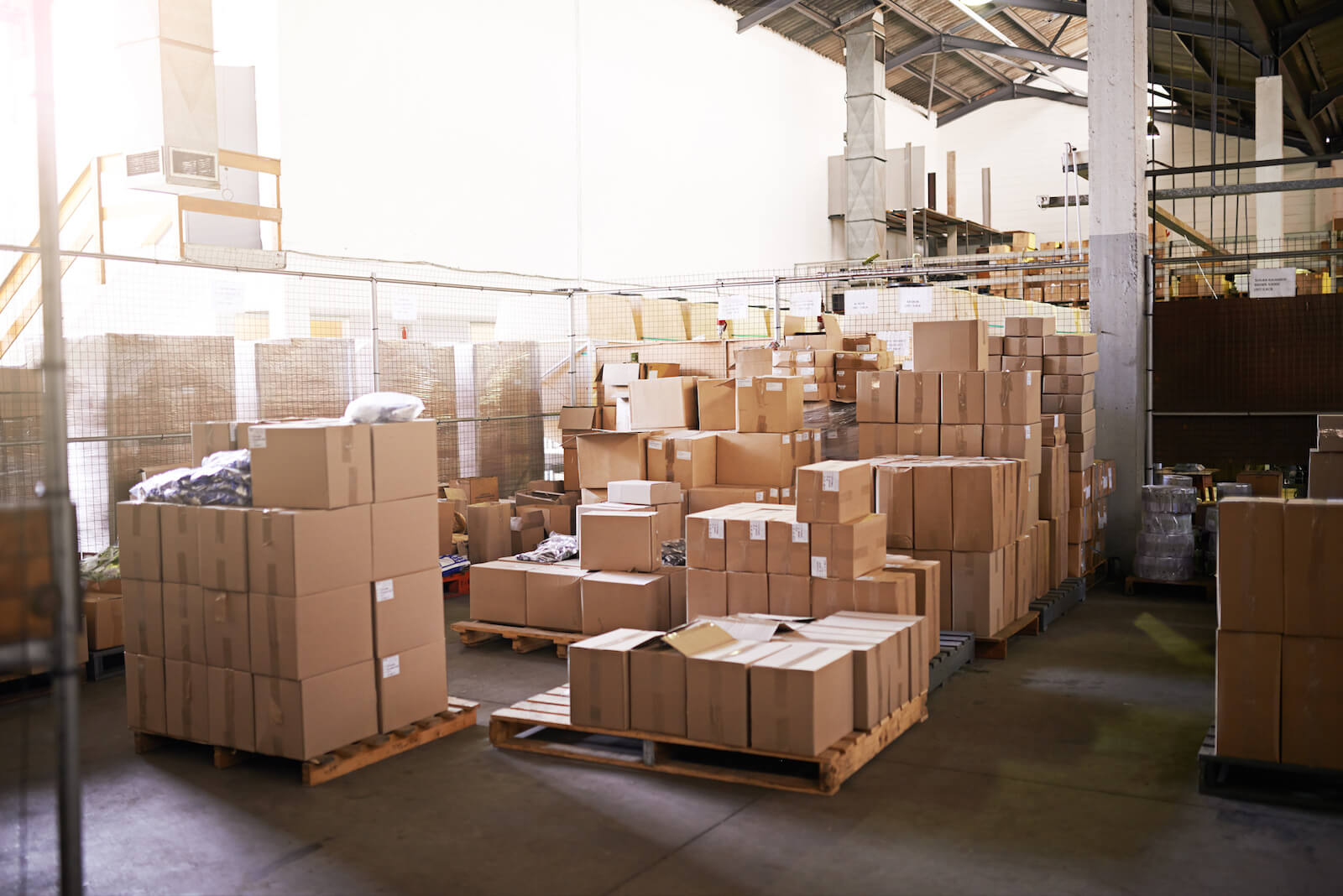Table of Contents
** Minutes
3 common types of B2B ecommerce businesses
Choosing the right B2B ecommerce platform
3 popular ecommerce platforms for B2B
Scaling your B2B ecommerce offering
Examples of successful B2B ecommerce companies
Have you ever stumbled upon your favorite online brand’s products at a brick-and-mortar store? You can thank B2B ecommerce for that.
There was a time when B2B companies used to only sell offline and would work directly with suppliers by phone or face to face. Today, the scenario is quite different as 73% of B2B buyers are millennials who prefer the convenience of purchasing bulk orders online. This explains why even Amazon has been investing in developing its B2B ecommerce arm.
If you are new to the B2B ecommerce market, this guide will help you better understand how B2B ecommerce works, how to market to B2B customers, and which ecommerce platforms are the most B2B-friendly.
What is B2B ecommerce?
B2B ecommerce refers to processing orders for businesses or retailers, rather than sending orders directly to consumers. B2B orders are often purchased less often, sold in bulk, and shipped via freight (or parcel for smaller orders).
3 common types of B2B ecommerce businesses
B2B ecommerce takes up a lot of space in the market, and it consists of wholesalers, distributors, and suppliers. Here is a breakdown of the three most common types of B2B ecommerce businesses.
1. Wholesalers
Wholesalers buy inventory in bulk directly from manufacturers or distributors, and they resell them to other businesses (retailers and other wholesalers). Traditionally, a wholesale order occurred via calls or emails, but now it’s more common for wholesale orders to occur online through a designated ecommerce platform.
2. Suppliers
Suppliers are B2B companies that are the source of goods in most ecommerce supply chains. Their immediate customers are distributors, who resell to wholesalers or retailers. Often, suppliers are confused with distributors. The main difference is that that suppliers produce goods but don’t have the capacity and geographical reach to sell them. On the other hand, distributors have access to more channels.
3. Distributors
Distributors procure goods from suppliers to sell to wholesalers and retailers, and they work closely with manufacturers. The greatest benefit of working with a distributor is they can easily help you expand your reach, even internationally.
For instance, if your brand is US-based, but you want to expand into Europe, you can find an international distributor that can connect with you with a large network of retail outlets in the regions you’re interested in and have a demand for your product.
B2B ecommerce marketing
B2B ecommerce sales are expected to reach $1.8 trillion by 2023. Though it’s a competitive market, B2B ecommerce offers a lot of ways to market. If you have B2B customers willing to buy from you in bulk, it’s worth creating a separate online site specifically for B2B buyers.
B2B orders are often repeat purchases done in bulk and ordered less frequently. When marketing to B2B buyers, it’s important to focus on relationship-building, as well as implementing technology and processes that make it easy to place a B2B order.
Another great way to help build trust with B2B customers is to create educational content. Content such as sizing charts, ingredients lists, videos, and customer testimonials can help drive more B2B sales. In fact, the average B2B buyer is said to read through approximately 13 pieces of content before making a purchase. To optimize your marketing efforts further, it’s essential to leverage your business capabilities effectively. Understanding your unique strengths and how they align with your target market’s needs can enhance your marketing strategies and lead to increased B2B sales.
“Most recently our sales have exploded not just for online DTC orders but we’ve also seen a lot of B2B growth. While our Instagram and Facebook ads are directed toward consumers, our customers are often decision makers for a business. There can be a gray area in knowing which use case someone is buying for, but we want to get it right since we have different funnels and approaches in how we cultivate loyalty, enable repeat purchases, and market to DTC vs. B2B customers.”
Andrea Lisbona, Founder & CEO of Touchland
Choosing the right B2B ecommerce platform
There are plenty of B2B ecommerce platforms on the market, but it’s important to choose the right one for your business. Here are a few things to consider when choosing an B2B ecommerce platform to expand your business.
Create a user-friendly website
It’s important that the platform you choose makes it easy to build a user-friendly website that B2B buyers can navigate without any issues. Also, make sure that your domain is easy to type and remember so customers can reach you right away. Creating a mobile-friendly website made for B2B orders is essential. It should offer built-in functionality that enables the management of on-site content (blogs, spec sheets, comparison charts, volume pricing, etc.) so that new customers can efficiently research and evaluate your products.
Integrates with current software
For the B2B ecommerce platform to function optimally, it needs to integrate seamlessly with your existing critical business systems. This provides a single source of truth for accurate B2B order data that can be harnessed to improve back-end processes, streamline inventory management, f, and more.
Additionally, such software integrations can help to enhance the customer buying experience, such as automatically providing quotes in real-time, offering easy payment processing, allowing the ability for the buyer to set recurring orders, and more.
Links third-party suppliers to your store
By linking your third-party supplier with your store, every time an order is placed, the supplier can directly receive an order fulfillment notification. If your business employs this dropshipping fulfillment method, make sure your online store is linked to your supplier so orders can be fulfilled as quickly as possible.
However, dropshipping isn’t your only option. A better alternative is to partner with a fulfillment provider that offers both DTC and B2B fulfillment with several fulfillment center locations like ShipBob to make it easy to integrate your store with their technology.
Provides detailed data reports
In order to future-proof your online business, choose an ecommerce software that offers robust data and analytics reporting. This way, you can easily track B2B orders and trends, and even user behavior so you can make further improvements to your site. By keeping an eye on such data, you can forecast future business growth, detect any site issues that might be impacting sales, and more.
3 popular ecommerce platforms for B2B
There are plenty of ecommerce platforms on the market to choose from. Here is a look at the top three ecommerce platform providers for B2B ecommerce.
1. BigCommerce
BigCommerce is an open SaaS platform that is well-regarded for being highly secure and scalable. From storefront design and smart ops to headless ecommerce, BigCommerce has a range of features to optimize your online business. You may use it to build an ecommerce website that integrates with all your legacy technology, while also offering boundless creative freedom and customizations. This hosted ecommerce platform charges a monthly subscription fee ranging from $29.95 to $299.95.
2. Magento 2
Owned by Adobe, Magneto 2 is a self-hosted platform, with monthly flat rates starting at $1,600. This ecommerce platform’s easy-to-use interface (drag and drop) offers out-of-the-box features for page building, merchandising, business intelligence, product recommendations, inventory management, and more. Easy to implement, it also features a global partner ecosystem, an extensions marketplace, and cloud deployment. Additionally, Magneto’s precise analytics and reporting is considered one of the industry’s best.
3. Shopify
While more known for DTC sales, Shopify allows you to turn your offline business into a dynamic online store in minutes. Shopify is known for being a very user-friendly ecommerce platform. It offers up everything you need to set up a fully functional B2B ecommerce website, from storefront to mobile app, marketing support, web hosting, store management, and more. To use Shopify’s B2B ecommerce services, you will need to pay a monthly subscription fee ranging from $29 to $299.
Scaling your B2B ecommerce offering
Ready to join the ranks of many other successful B2B ecommerce businesses? The next step is to prepare your logistics operations for growth. Scaling without the proper support and resources can be a logistical nightmare. To fast track this growth curve, it would be ideal to partner with a third-party logistics (3PL) company like ShipBob that enables you to outsource, automate, speed-up, and improve your B2B fulfillment strategy.
Outsource fulfillment
As you scale your online B2B ecommerce business, you will need logistics support to help fulfill B2B orders.
Outsourcing fulfillment to a third-party logistics (3PL) partner like ShipBob provides you access to a robust fulfillment distribution network and advanced technology to help you optimize your supply chain. ShipBob takes care of both direct-to-consumer and B2B fulfillment for you, so can focus more of your time on building customer relationships, rather than being buckled down on time-consuming logistics tasks.
Increase order accuracy
Throughout the process of scaling your business, it can be a challenge to fulfill orders on time without compromising order accuracy. Delivering a B2B order inaccurately can cause delays and reduce future sales as B2B ecommerce relies on repeat purchases.
To improve efficiency and reduce human error, it’s best to leave fulfillment up to the experts. Whether it’s assigning pickers optimized routes, opening more fulfillment center locations to reduce shipping costs and transit times, or improving the order filling process, ShipBob continuously identifies ways to improve and achieve higher levels of order accuracy.
Improve shipping times
Orders that have to travel to higher shipping zones take longer to arrive and are more expensive than those going to closer destinations. ShipBob offers a growing global fulfillment network, so you can significantly reduce last-mile delivery timelines and costs. This, in turn, enables you to provide faster and affordable shipping options for your B2B (and B2C) customers.
Automate inventory management
Losing track of inventory is a common problem that growing ecommerce businesses face. It leads to issues such as having too much inventory or not enough to fulfill orders.
ShipBob proprietary technology offers built-in inventory management tools to help you automate and manage inventory in real time. With ShipBob, you can track inventory levels, prepare for the unexpected, and access valuable data that shows purchasing trends so you can better forecast future inventory demand.
Examples of successful B2B ecommerce companies
ShipBob partners with thousands of direct-to-consumer brands, many of which expand the B2B ecommerce side of their business over time. Here are some examples of how ShipBob has helped ecommerce brands drive more B2B sales.
TB12: a fitness and supplement brand
TB12 is Tom Brady’s health, wellness, and fitness brand that sells supplements, protein powders, and much more to everyone from professional athletes to those who are doing at-home workouts. After working with a regional 3PL, TB12 partnered with ShipBob after a comprehensive search of 3PLs who could scale with them.
“Direct-to-consumer makes up the vast majority of our orders at this point, but ShipBob also helps with our B2B needs. We offer products though Whole Foods in the Northeast and are looking to expand our wholesale channels.”
Michael Peters, VP of E-Commerce Operations at TB12
BAKblade: a men’s personal care brand
Men’s body shaver BAKblade partnered with ShipBob and started using 5 fulfillment centers to ship their products from. In just over 3 years they grew 291%. To expand into new channels and markets, they lean on ShipBob to help streamline their fulfillment process for both B2B and B2c orders.
“As we expand with B2B and B2C orders, ShipBob’s pricing structure remains simple without any add-on charges. With most 3PLs, you will see a lot of hidden fees when you do your homework. ShipBob doesn’t play games – the pricing is clear and easy to understand.”
Matt Dryfhout, Founder & CEO of BAKblade
Boie: an eco-friendly toothbrush brand
Boie produces eco-friendly toothbrushes that last longer than conventional toothbrushes. Since Boie’s products are low-cost and shipped to customers for free, the brand required a 3PL provider that would reduce shipping costs, efficiently manage the fulfillment process, and help transition them into a multichannel brand.
“We’ve done some B2B orders with ShipBob, including Urban Outfitters, and now we’re in talks with some larger wholesale accounts. We’re also testing subscription box partnerships.”
Manuel de la Cruz, CEO at Boie
Let ShipBob handle your B2B orders
ShipBob helps fulfill not only website orders but also has a B2B Fulfillment Suite and EDI capabilities, enabling merchants to sell throughout the entire B2B ecosystem, powering retail dropshipping (fulfilling orders placed on big box retailers’ websites) and wholesale shipping (including brick-and-mortar stores), which can connect with all the major retailers.
As you enter into new channels, ShipBob can help you manage both B2B and B2B orders and provide full visibility into the fulfillment process all from one dashboard.
ShipBob offers best-in-class fulfillment and technology solutions that allow you plenty of room to expand your business. You can learn more about our B2B process here.
“Using ShipBob’s automated B2B solution, I know that orders are going to get out on time, because they’re automatically flowing through ShipBob. It doesn’t require someone to log in, input the order manually, and generate all of the shipping labels – instead, everything is created automatically and accurately. That level of precision and time-savings is absolutely key.”
Nadine Joseph, Founder & CEO of Peak and Valley
To learn more about how ShipBob can help you save time on retail fulfillment, click below to start the conversation and receive custom pricing.
B2B ecommerce FAQs
Getting started with B2B ecommerce can be exciting, and you probably have a lot of questions about it. Here are some answers to frequently asked questions.
What is B2B ecommerce?
B2B ecommerce refers to the process of receiving orders from business customers or retailers, rather than directly from consumers. B2B orders are often sold in bulk and are shipped via freight (or parcel for smaller orders).
How does B2B ecommerce work?
Today, most B2B ecommerce transactions occur online, similar to how B2C orders are processed, but the sales process is slightly different. Most often, B2B sales are offered in bulk and often require a purchasing quote. B2B buyers can place an order online through an ecommerce brand’s website.
How to start B2B ecommerce?
The first step is to set up a B2B ecommerce website. This portal should not only offer an intuitive front-end customer experience but also seamless back-end processes, such as inventory management, order processing, order fulfillment, and more to ensure a positive B2B customer experience.
What is B2B and B2C in ecommerce?
A B2C ecommerce transaction is one in which an end-consumer buys directly from an online store. On the other hand, when one business orders from another online, it is considered a B2B ecommerce transaction.



